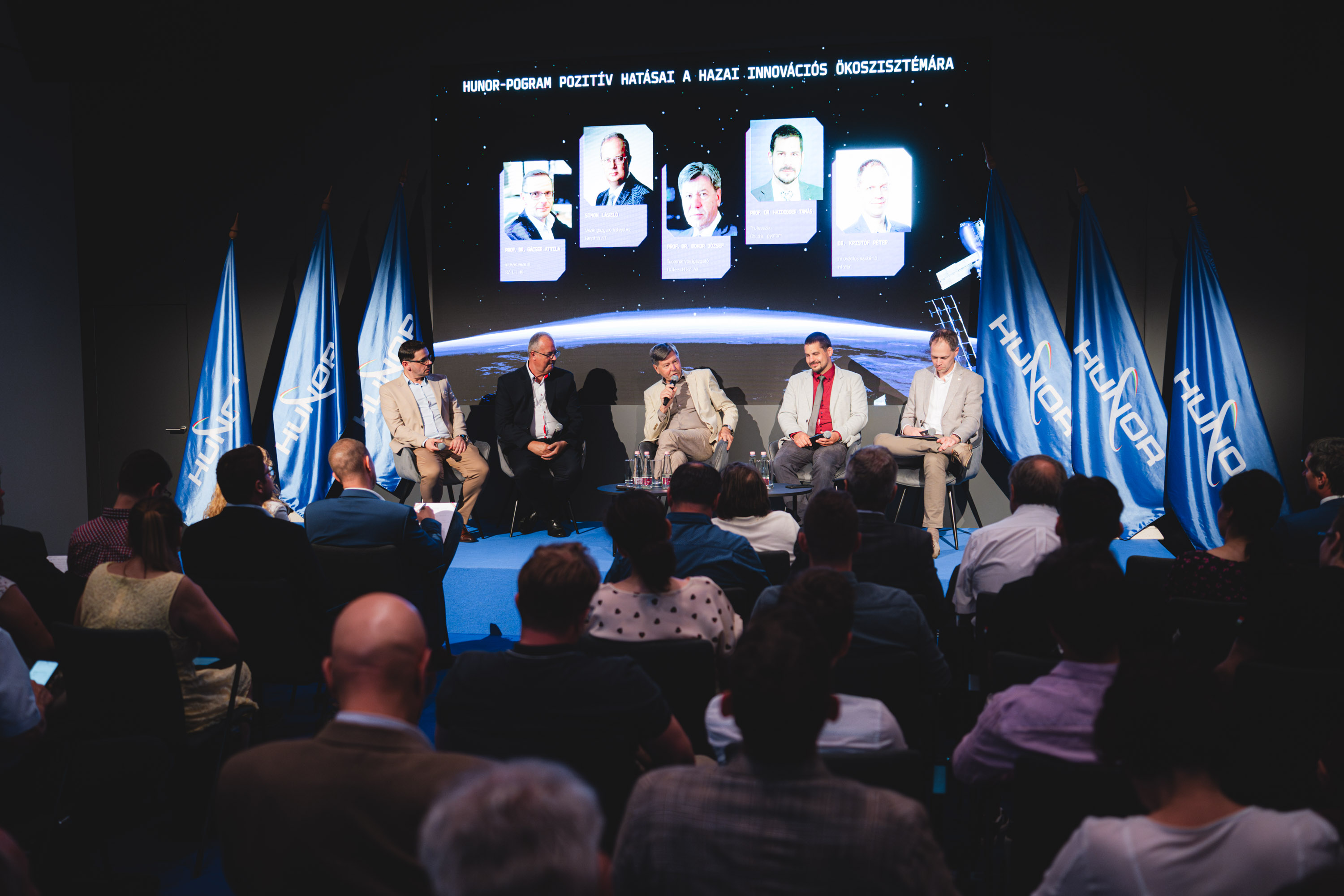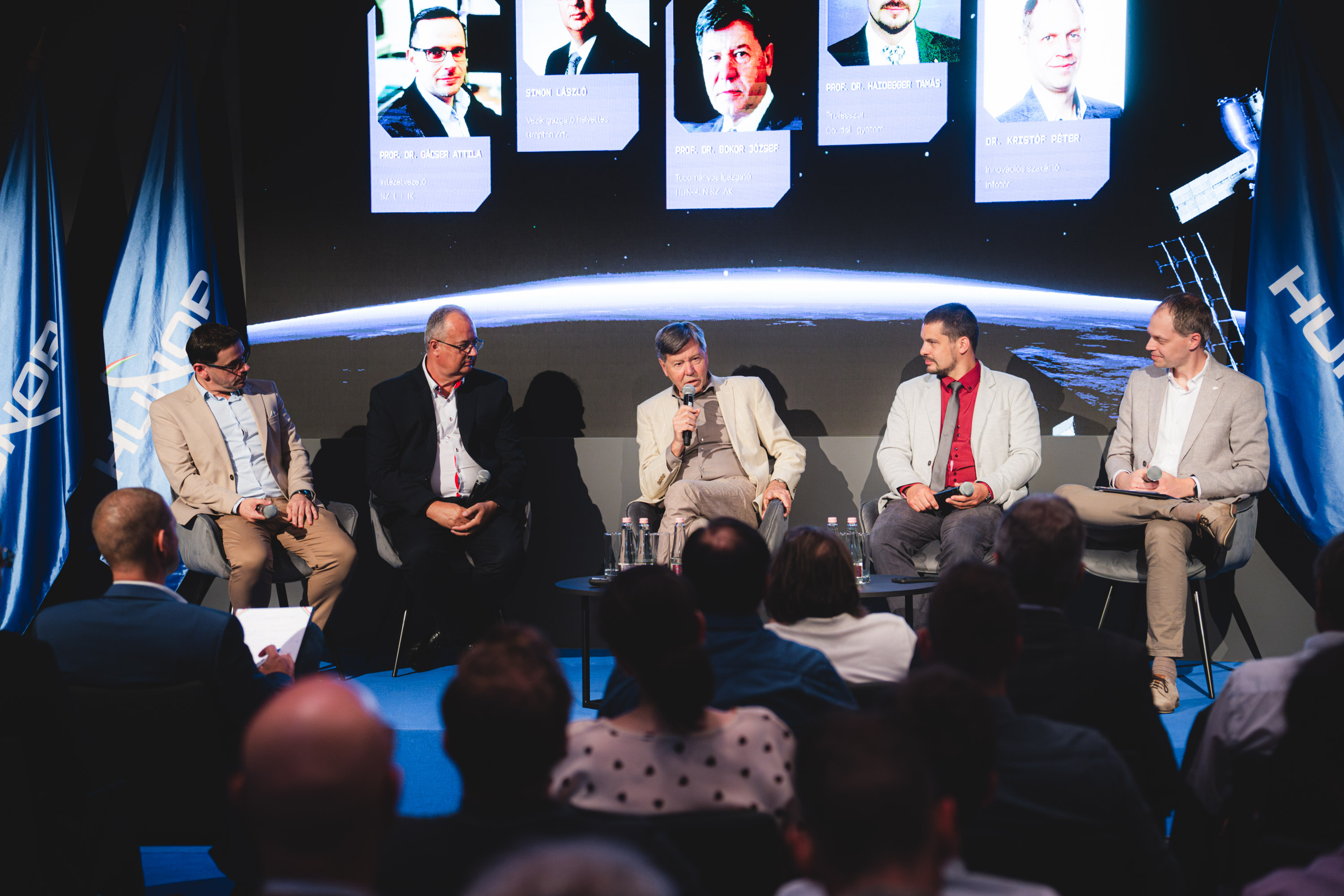How the HUNOR Programme Could Impact Hungary’s Innovation Ecosystem
On 16 June, Millenáris Hall played host to a professional event titled HUNOR Programme: A “Booster” for Hungary’s Space Sector, which featured a roundtable discussion on The Positive Impact of the HUNOR Programme on Hungary’s Innovation Ecosystem.
Participants in the roundtable discussion included Prof. Dr József Bokor, Scientific Director of the HUN-REN Institute for Computer Science and Control (HUN-REN SZTAKI) and Chair of the Vehicle Industry Research Centre at Széchenyi István University; Prof. Dr Attila Gácser, Head of Institute within the Faculty of Science and Informatics, University of Szeged; Prof. Dr Tamás Haidegger, Professor at Óbuda University and CEO of Initium Venture Labs Plc; and László Simon, Deputy CEO of Grepton Plc. The discussion was moderated by Dr Péter Kristóf, an innovation expert at Infotér. Professor József Bokor also serves on the governing board of the HUNOR Programme, where he oversees the mission’s scientific programme.
said the professor.
Professor József Bokor noted that several institutes within HUN-REN are engaged in space-related research. For example, the Institute of Earth Physics and Space Science in Sopron and the Centre for Energy Research are both involved in activities related to the space industry. At HUN-REN SZTAKI, the focus is primarily on control engineering, sensor technologies, and signal processing.

Professor József Bokor explained that the HUNOR Programme could help strengthen existing international collaborations in the space industry. He added that, while many aim to become suppliers, participation in international divisions of labour is equally important — and in his view, the latter has proved more successful. ‘We have collaborated with NASA and, to some extent, with ESA as well. For example, we were already working on space interferometry and space robotics. Today, these lightweight robotic systems are increasingly being applied in medical robotics. However, this requires mastering specialised methodologies, ranging from control engineering to sensor technologies,’ the professor said, before stressing the importance of adopting a space research mindset. ‘We should not only focus on becoming direct suppliers to the space industry, but also consider the broader impact of space technologies. This knowledge must be acquired through international cooperation. Hungary has already, to some extent, been integrated into this international community,’ he noted.

Professor József Bokor explained that in Hungary, national laboratories have been established to cover major research areas. These include the National Laboratory for Autonomous Systems and the Artificial Intelligence National Laboratory, both coordinated by HUN-REN SZTAKI. However, no such structure exists in the field of space research. ‘One academic achievement would be the establishment of a national laboratory-style mission to coordinate related domestic research efforts and to channel national funding into this area in a more focused and effective way,’ the SZTAKI professor concluded.

